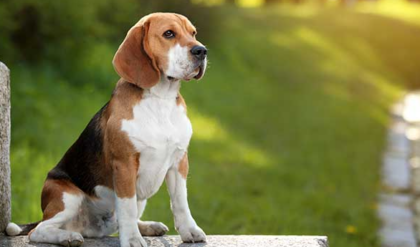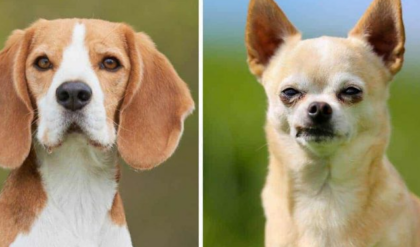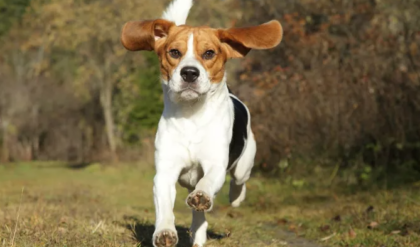Introductory paragraph:
Beagles are one of the popular and beloved dog breeds around the world. Known for their adorable floppy ears, friendly personalities, and exceptional scenting abilities, these charming hounds have captured the hearts of many dog lovers. Whether you’re considering adding a Beagle to your family or simply curious about these delightful canines, this comprehensive article will provide you with 100 fascinating facts about these remarkable companions.

Origin and History
Ancient Roots
- The Beagle’s origins can be traced back to ancient Greece, where small hounds were used for hunting hares and rabbits.
- The name “Beagle” is believed to have derived from the French word “begueule,” meaning “open throat,” referring to their distinctive baying bark.
The Breed’s Development
- In the 11th century, English nobles further developed the Beagle breed for their hunting needs, selectively breeding the dogs for their keen sense of smell and endurance.
- During the reign of King Henry VII in the 16th century, the Beagle gained popularity among the British aristocracy, and the breed’s standards were established.
Recognized as a Distinct Breed
- The Beagle was officially recognized as a distinct breed by the English Kennel Club in 1890.
- In the United States, the American Kennel Club (AKC) recognized the Beagle breed in 1884, solidifying its status as a popular hunting companion.
Physical Characteristics
Size and Weight
| Size | Weight |
|---|---|
| Small to medium | 20-30 pounds (9-13.6 kg) for males |
| 18-25 pounds (8.2-11.3 kg) for females |
- Beagles typically stand between 13 and 16 inches (33-41 cm) tall at the shoulder.
- Their compact and muscular build makes them agile and well-suited for outdoor activities.
Distinctive Features
- Beagles are renowned for their floppy ears, which help trap scent particles and enhance their sense of smell.
- Their short, smooth coat comes in various colors, including tri-color (black, tan, and white), red and white, lemon and white, or tan and white.
- They have a square-shaped muzzle and a friendly, intelligent expression.
The Beagle’s Nose
- Beagles are known for their exceptional sense of smell, which is estimated to be 10,000 to 100,000 times better than a human’s.
- Their large nasal cavities and an impressive 300 million scent receptors contribute to their remarkable olfactory abilities.
- This trait makes them excellent hunting dogs and successful in various scent detection roles.
Temperament and Personality
Friendly and Affectionate
- Beagles are known for their friendly and affectionate personalities, making them excellent family companions.
- They are generally good with children and enjoy being part of a social pack.
- Their happy-go-lucky attitude and playful nature make them a joy to be around.
Curious and Energetic
- Beagles are incredibly curious and energetic dogs, with a strong instinct to follow their noses.
- They can be stubborn and may wander off in pursuit of an interesting scent if not properly trained and supervised.
- Regular exercise and mental stimulation are essential to keep them happy and well-behaved.
Vocal and Barking Habits
- Beagles are known for their distinctive baying bark, which they use to communicate and alert others when they have picked up a scent.
- They can be quite vocal and may bark excessively if not properly trained or left alone for extended periods.
- However, with proper training and socialization, their barking can be managed.
Health and Care
Common Health Issues
- Beagles are generally healthy dogs, but like all breeds, they can be prone to certain health conditions, such as:
- Hypothyroidism
- Epilepsy
- Luxating patella (kneecap dislocation)
- Intervertebral disc disease
- Obesity (due to their love of food)
Grooming and Shedding
- Beagles have a short, smooth coat that requires minimal grooming.
- They are moderate shedders and benefit from regular brushing to remove loose hair and distribute skin oils.
- Occasional baths and regular nail trimming are also recommended.
Exercise and Mental Stimulation
- Beagles are energetic dogs that require daily exercise and mental stimulation to stay happy and healthy.
- Regular walks, playtime, and scent-based games or activities can help satisfy their natural hunting instincts and keep them engaged.
- Providing enough exercise and enrichment can help prevent destructive behaviors caused by boredom or excess energy.
Training and Socialization
Importance of Early Training
- Early training and socialization are crucial for Beagles to learn good manners and prevent unwanted behaviors.
- Positive reinforcement training methods, using treats and praise, are most effective for this breed.
- Consistent and patient training can help overcome their stubborn and independent nature.
Beagle-Specific Training Tips
- Use high-value treats and make training sessions fun and engaging to keep their attention.
- Combine training with physical and mental exercise to help them learn more effectively.
- Introduce them to various sights, sounds, and situations to promote proper socialization.
Beagle Sports and Activities
- Beagles excel in various dog sports and activities, such as:
- Scent work and nose work competitions
- Agility trials
- Obedience trials
- Tracking events
- Hiking and outdoor adventures
Beagles in Various Roles
Hunting and Tracking
- Beagles were originally bred for hunting small game, such as rabbits and hares.
- Their exceptional scenting abilities and endurance make them excellent trackers and hunters.
- They are still used in various hunting and tracking activities today.
Detection and Security
- Beagles’ keen sense of smell has made them valuable assets in detection and security roles.
- They are used to detect various substances, including agricultural products, contraband, and even bedbugs.
- Some Beagles are also employed at airports and border crossings to detect prohibited items.
Therapy and Emotional Support
- With their friendly and affectionate nature, Beagles make excellent therapy dogs.
- They are often used in hospitals, nursing homes, and other care facilities to provide comfort and emotional support.
- Some Beagles also serve as emotional support animals for individuals with mental health conditions or disabilities.
Conclusion
The Beagle is truly a remarkable breed, combining adorable looks, friendly personalities, and exceptional scenting abilities. From their ancient origins as hunting companions to their modern-day roles in various fields, these charming hounds have proven their versatility and value. Whether you’re looking for a loyal family companion or a skilled tracking partner, the Beagle is sure to capture your heart with its endearing qualities. By understanding these 100 fascinating facts, you can appreciate the unique characteristics that make these dogs so beloved and cherished by dog lovers around the world.
In conclusion, Beagles are a beloved breed known for their friendly nature, curious personality, and exceptional sense of smell. From their origins as hunting dogs to their roles in various fields such as detection work and therapy, Beagles have proven to be versatile and valuable companions. Understanding the history, characteristics, and care needs of Beagles is essential for anyone considering adding one of these lovable hounds to their family.
By providing proper training, socialization, exercise, and care, Beagle owners can ensure that their furry friends lead happy and fulfilling lives. Whether they’re sniffing out scents on a trail, cuddling up for a nap, or bringing joy to those in need of emotional support, Beagles continue to capture the hearts of dog lovers worldwide with their unique blend of charm and talent. If you’re looking for a loyal, affectionate, and endlessly entertaining canine companion, the Beagle might just be the perfect match for you.






